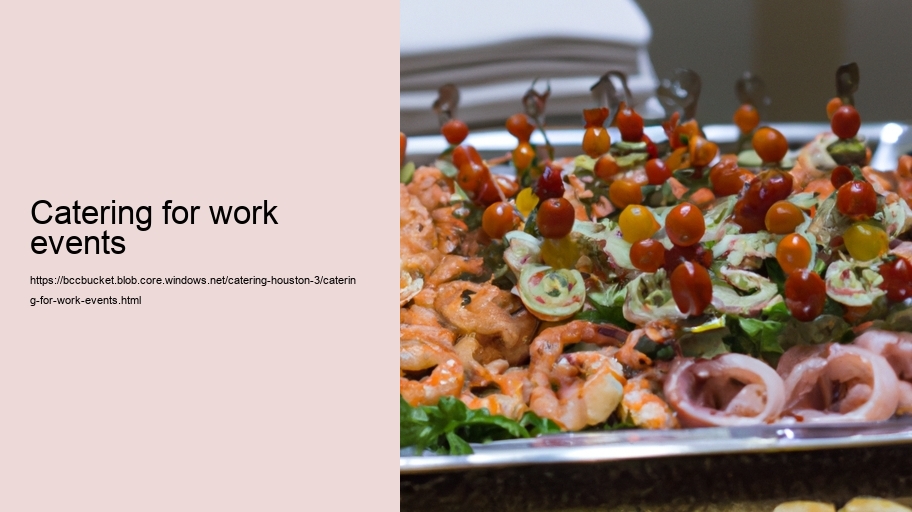Catering for work events is an essential aspect of corporate culture, often overlooked yet pivotal in fostering collaboration, enhancing productivity, and nurturing employee satisfaction. The confluence of gastronomy and professional gatherings creates a symphony that resonates with the harmonious clinking of cutlery, the murmur of satisfied conversations, and the subtle aroma of delectable cuisine wafting through the air.
In any organization, work events vary from casual team meetings to grand annual conferences. Regardless of their scale, these functions carry immense potential for networking, sharing ideas, and building camaraderie amongst colleagues. Catering plays a significant role in this dynamic by providing sustenance and comfort to attendees. It acts as a catalyst that aids social interaction and keeps participants engaged throughout the event.
The selection process for catering is pivotal; it reflects an organization's values towards its staff and guests. A well-thought-out menu demonstrates consideration for diversity in dietary preferences such as vegetarianism, veganism, gluten-free requirements or food allergies. This inclusivity ensures everyone can enjoy the meal without hesitation or discomfort.
Moreover, catering at work events is not just about feeding people; it's about creating experiences. A themed buffet might transport employees to different corners of the world during an international meeting or a beautifully plated gourmet dinner could elevate an awards ceremony. Food presentation is key—it should capture attention and spark conversation among participants.
Organizations must also consider timing when arranging catering services. Morning events may call for light pastries and coffee while afternoon sessions could be paired with sandwiches or salads that don't weigh down attendees but keep them energized. For evening occasions, more substantial fare may be appropriate to conclude the day’s activities on a fulfilling note.
Furthermore, sustainability has become increasingly important in today’s corporate ethos. Caterers who source ingredients locally or offer eco-friendly options are particularly attractive to companies aiming to minimize their environmental footprint even during their most elaborate events.
Caterers themselves must rise to meet various challenges inherent in corporate settings: delivering high-quality service within budget constraints while accommodating potentially large numbers of guests—and do so seamlessly behind-the-scenes so as not to disrupt proceedings.
The human element cannot be understated either—catering staff represent the company indirectly through their professionalism and demeanor during service delivery. Their interactions with employees can enhance overall experience at an event by ensuring each guest feels valued and taken care of.
Ultimately, catering for work events extends beyond mere provision of food; it symbolizes thoughtfulness from management toward its workers' well-being—a gesture that reinforces teamwork spirit outside typical office confines into realms where personal connections are forged over shared meals.
From boardroom luncheons that fuel strategic decision-making sessions to celebratory banquets marking company milestones—every catered event serves up opportunities for growth both on personal plates and within professional landscapes alike. Through careful planning and execution regarding catered offerings at work-related functions, organizations can effectively communicate appreciation for their workforce while simultaneously investing in positive workplace dynamics—a recipe for success worth savoring on every organizational menu.
